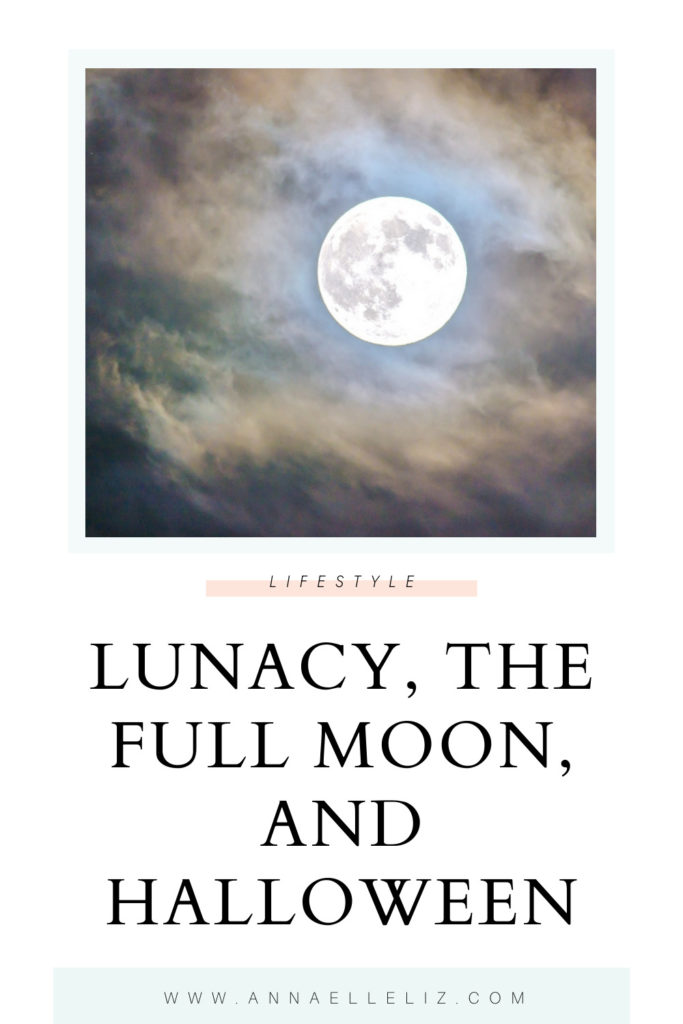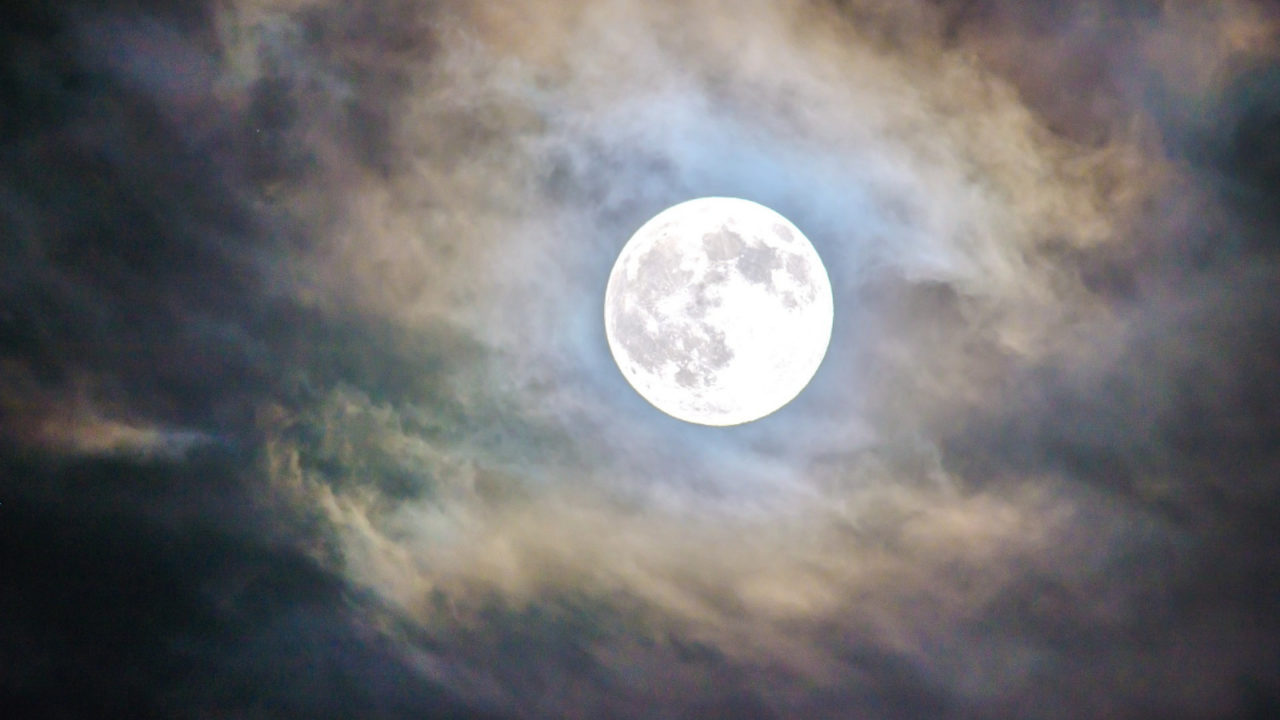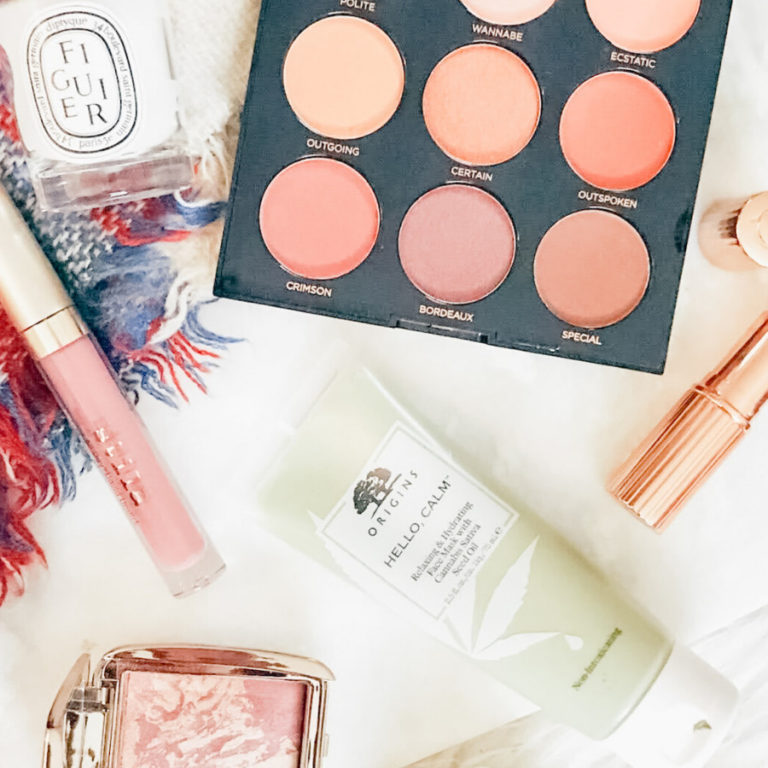It’s that time again! Halloween is just around the corner…you know when things go bump in the night, decorations spring up high and low, full moons take on an ominous glow, spooky costumes come out to play, and candy dishes get filled all day? This can only mean one thing—it’s time for a spooky lesson to creep into session (see what I did there ?)!
For today’s class (ahem, post) we’re diving into the mystery of the moon.
Disclaimer: I’m by no means an expert in etymology or psychology but just a mere former student gleefully sharing the ‘bones’ of what good stories are made of (shoutout to my Gaelic, Celtic History, and Folklore plus History of the English Language professors).
“THERE MUST BE A FULL MOON OUT THERE”
That phrase sound eerily familiar? Well, it’s been used as an attempt to explain the weird happenings that come alive at night; so much so that it’s created this belief that there are “mystical” powers of the full moon that induce erratic behavior—something that dates back thousands of years.
Greek philosopher Aristotle and the Roman naturalist Pliny the Elder believed that madness and epilepsy were caused by the Moon, as the brain was the “moistest” organ in the body and thereby most susceptible to its so-called influences.
Through the Middle Ages and throughout Europe, the belief persisted so much so that they seemed to take on a life all their own with storytellers proclaiming humans were transforming into werewolves during a full moon.
Needless to say, it made for colorful spooky tales, endless sci-fi tv, movies, and of course, costumes for days.
Even today, these beliefs still persist due to a phenomenon that University of Wisconsin–Madison psychologists Loren and Jean Chapman termed “illusory correlation”, the perception of an association that does not, in fact, exist.
Here’s an example. Say a man holds the belief that people in urban environments tend to be rude. With this erroneous perception in place, when he finally meets someone who is rude, he assumes the person must be from the city, rather than a rural area.
The man’s conclusion about rude people is from his perception and false belief that a relationship exists between two variables (behavior and where people live).
Illusory correlations mainly result, in part, from our mind’s propensity or tendency to entertain and recall most events better than things we haven’t experienced/non-events.
So when there’s a full moon and something decidedly odd happens, we usually notice it, tell others about it, and remember it (mostly because those “co-occurrences” fit with the different perceptions we all have).
Pretty freaky right!
ETYMOLOGY (OR ORGINS) OF LUNACY
Where did that word come from and why? Well, it hails from the Latin and French root word luna which means moon. The idea of lunacy or a lunatic came to be because folks started saying people were periodically insane with the changes of the moon.
In English, ‘lunacy’ first appeared around the 13th and 14th centuries in texts and poems. By the 19th century, ‘lunacy’ found its way into the American medical lexicon with the development of modern psychiatry where it transformed to the word ‘lunatic’.
However, during that time, ‘lunatic’ developed an offensive connotation as lunatic asylums (now psychiatric institutions) were used to promote the radicalization of “institutionalization being the correct solution to treating people considered to be ‘mad’.
It wasn’t long after that negative connotation that it was dropped from the medical lexicon by the end of the 19th century.
So, what replaced it? The term ‘insane’ and then subsequently ‘mental illness’ would soon be the new descriptors.
As for lunatic, more often than not, it’s used as a slang term to express exaggerations, for anyone who seems over the top or out of control.
CAN THE MOON REALLY AFFECT OUR MOOD?
So, we get that the full moon was thought to cause people to act outside of societal norms thus turning them into ‘lunatics’. But does the moon really have that much pull to actually affect our moods?
Even though its gravitational effects cause the rise and fall of ocean tides that can cause significant ecological changes, they are far too minuscule to generate any meaningful effects on human brain activity, let alone behavior.
As much as I’m an animal lover, especially wolves, I can honestly say, the thought of a neighbor “transforming” while I’m enjoying a moonlight walk doesn’t really appeal!
But whether you like to marvel at the beauty of the moon or track its phases (astronomy is fascinating), you can still get your fill for Halloween 2020 because there’ll be 2 full Moons on display. The first occurred on Thursday, October 1 (which I hope you got to see), and the second on Saturday, October 31…I can’t make this stuff up!
According to The Old Farmer’s Almanac, the full moon this Halloween will “be extra special, since it will be the second of the month and, therefore, a “Blue Moon.”
Even rarer is that a full Moon occurring on Halloween is not a common occurrence. Matter of fact, it only happens every 18 to 19 years.
So grab a toasty sweater, warm drink, and find a nice spot to stroll or sit while enjoying a (loony nutty) full moon this HALLOWEEN! ? ? ? ?
Want more spooky lessons? Check out my other post on The History of Halloween!
What’s your favorite part about Halloween?










17 Comments
[…] Lunacy, the Full Moon, and Halloween […]
What an interesting read! The moon carries so many superstitions, but it’s true we have many cognitive biases at play. The moon is so wonderous though! Happy Halloween!
I’m so fascinated by all the superstitions associated with the moon, it’s just so magical and mysterious which makes it even spookier sometimes! Happy Halloween to you too!
It’s fun to believe that the moon does cause madness in people. Knowing that there’s not a full moon on Halloween very often makes it hard to have as much spooky fun with the idea.
It adds the perfect spooky element to the moon to believe that it has an effect on behavior. Add in full moons on Halloween and it’s spooktacular 🌕
Loved your article. I do believe the moon does affect all behavior.
Thanks so much! Psst….I think so too! It might be pseudoscience, but the coincidences are waay to frequent for me ?
Loved reading about the history! Will definitely be grabbing a drink and lookin at the moon that night!
Same! Some wine or coffee and I’m set for some moon viewing 🍷☕🌙
Love this history behind the terminology and beliefs system surrounding the moon!
It’s so fascinating right ?!?
I loved this post. Looking forward to enjoying a glass of wine under the upcoming Blue Moon.
This makes me soo happy! So glad you reminded me about the wine, lol. I’ll make sure to get myself a glass too 🍷
This is cool. I didn’t know much about this. I am so excited for Halloween!
Yeah for cool Halloween-related facts! I’m hyped up on Halloween energy even though I’m staying in. What are you looking forward to?
Wow that’s so interesting and almost magical. I need to observe it
I’m already obessed with the moon so being able to draw some of these conections and throw in Halloween was just a win-win! Hope you get to see the rare moon this Halloween!